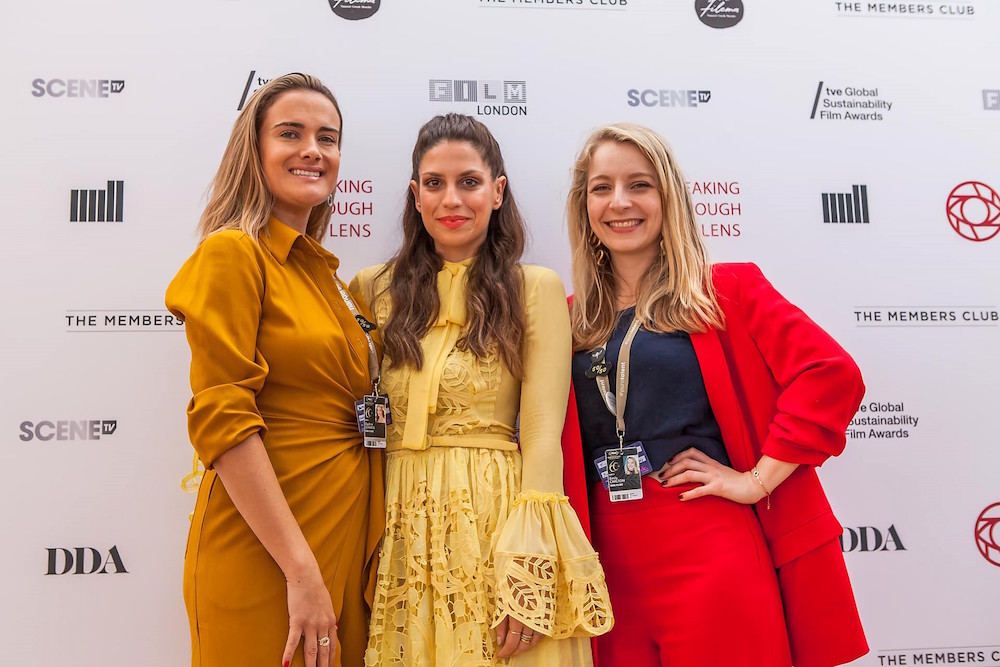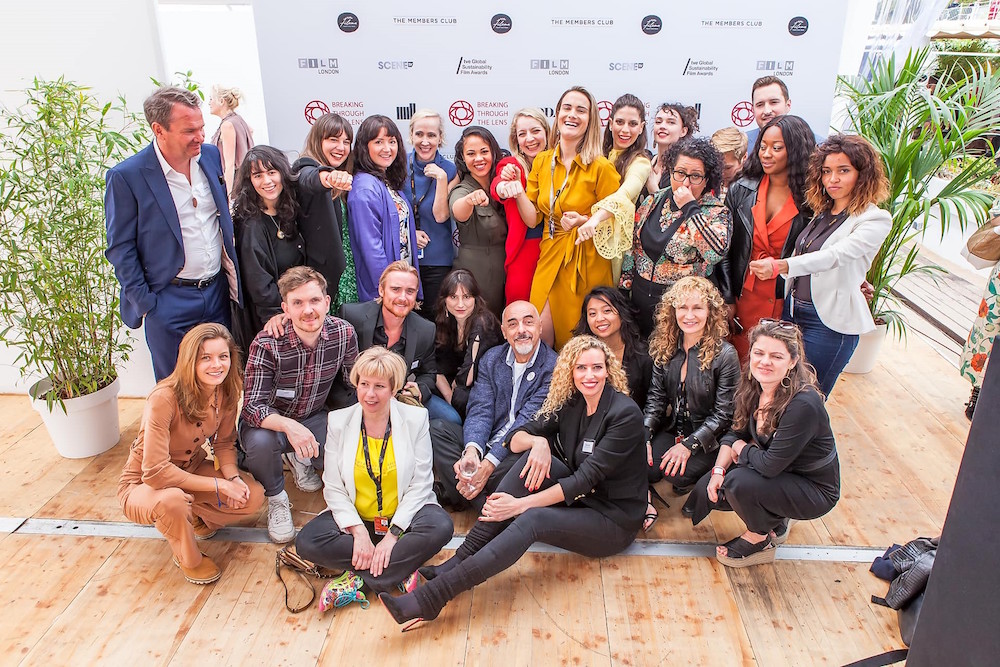Yes, women filmmakers did win a Grand Prix, as well as Best Screenplay at this year’s Cannes Film Festival, but the elusive Palme d’Or is still a big boys’ reward. And don’t even get me started about women journalists and how we’re treated — unless we write for the trades. In my humble opinion, as long as women writers are “mansplained” as The Atlantic‘s Jeffrey Goldberg did in his recent disastrous interview on the Neiman Lab, women filmmakers also don’t stand a fair chance. Though I don’t believe the problem is male editors and publicists alone. It’s often women against women, as the Madonna interview recently proved too. We just aren’t kind to each other. At all.
Yet at a recent breakfast event taking place just steps down from the Croisette promenade, on a beach in Cannes on a very gloomy day, the future of women filmmakers looked very bright. The second annual Breaking Through the Lens event connected women directors, as well as producers, with financing and more. It was packed, it was vibrant and the 10 film projects featured — anything from documentaries to narrative, thrillers to period dramas — made me yearn for their release soon. Real soon.
But first a bit of figures. This year there were 200 submissions to the Breaking Through the Lens program, from 54 countries around the globe. Without the fanfare of the “50/50 by 2020” movement on the stairs of the Palais last year, Breaking Through the Lens connects women filmmakers to financing, and if there were stars, they were there to work and not show off. Personally, it was the words of Elizabeth Bentley, the producer of Terrence Malick’s film ‘A Hidden Life’ which screened in Competition at this year’s Festival de Cannes, that really drove it home. Bentley pointed out that Malick is able to make all the films he wants and wondered aloud for us “what kind of movies would be made if women were given that level of support?” As I sat across from Werner Herzog interviewing him just a day earlier, I’d wondered the same thing. What if women filmmakers were given the same access to support and financing that, for example Herzog is given? Even when their ideas can seem a bit far fetched. I am singling out Herzog of course, because his projects are always so out of this world — both beautiful and unthinkable — but I wonder how the pitching session for them goes. Something like “I’d like to build an ark in the Amazons for my next project” for example…

Breaking Through the Lens was co-founded by Daphne Schmon, Emily Carlton and Elpida Stathatou, three women who come from very different backgrounds and provide their individual expertise to the program. They are aided by other exceptional women who help in putting together the annual event, provide year-round support and all together decide which projects will participate in each edition.
Following are a couple of my favorite projects but do check out their full list of projects from this year’s Cannes lineup to discover yours.
‘A Life Electric’, is a documentary and will be co-directed by Michaela Storm Moir (she’s also a co-producer) and Fraser Morton. It tackles the issue of epilepsy around the world, from different perspectives as well as disparate solutions. The idea that such a complex illness can be featured on the big screen is intriguing and the personal angle, Blair Morton’s brother suffers from the disease, promises to make it a cool, emotionally charged film.
‘Dawn, Her Dad & the Tractor’ is a family drama, written and directed by Shelley Thompson. The film centers around an estranged father/daughter relationship. Except for one twist — John’s daughter Dawn used to be Donald, making things complicated. From how Thompson told her story, I could already see the finished product and I am a huge fan of father/daughter stories. Especially ones that feature, how shall I put it… difficult relationships.

‘Finding Satoshi’ is a hybrid documentary written and directed by Emily James. It follows a fictional character into the real world, on the hunt for the legendary creator of Bitcoin, Satoshi Nakamoto, whose real identity has never been uncovered. I loved the feel of the pitch of this film, a kind of ‘Freakonomics’ on drugs. And I enjoy films that deal with these kinds of secrets finally told, even if I imagine that the ending of this film once it is made will leave me with more questions than answers.
‘Sirens’ is a documentary by director and producer Rita Baghdadi. It features five young women in post-war Beirut who navigate their identity, friendship and pressures of growing up, while also not conforming through their pursuit of becoming thrash metal rockstars. If you know me, you know this got me at “Beirut” but also the idea of young women rockstars can give me new heroines to look up to. Truly, a dream project as far as I’m concerned and I can’t wait to watch it and write much more about it.
‘The Good Iranian’ is a thriller co-written and directed by Tina Gharavi. Gharavi’s pitch simply states “Iranian. Women. Gangsters. London 1986.” Perhaps these powerful women, delving into a battle between good and evil, into what Gharavi calls “deepest darkest Iran” are what we need to stop the insanity of this conflict threat started in these last few days. For me, this proves another favorite project by a woman whom I know will make me proud of my gender.
And last but not least, ‘Heatstroke’ by writer and director Nina Menkes, is a political thriller set between Los Angeles and Cairo, executive produced by Gus Van Sant, with producer Elizabeth Bentley. It deals with two sisters who are profoundly alienated from both themselves and each other. But also proves a bridge to understanding this West vs. the Islamic world atmosphere we find ourselves in which Menkes, whose family hails from the Middle East, calls a “key issue of our time.” I can’t wait to see what prolific filmmaker Menkes dishes out this time. And LA and Cairo as locations, yes please!


